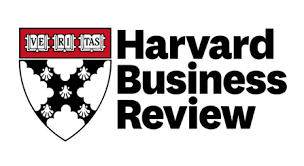
Weekly Business Insights from Top Ten Business Magazines
Extractive summaries and key takeaways from the articles curated from TOP TEN BUSINESS MAGAZINES to promote informed business decision-making | Since 2017 | Week 354 | June 21-27, 2024 | Archive

Personal Development, Leading & Managing Section | 1
The Vital Role of the Outgoing CEO
By Rebecca Slan Jerusalim and Navio Kwok | Harvard Business Review | July–August 2024 Issue
Extractive Summary of the Article | Read | Listen
The majority of the research on succession focuses on the “how.” What that research typically neglects, however, are the actions and emotions (particularly late in the process) of one central protagonist: the outgoing CEO.
Most CEOs spent years striving to get to the top. During their time in office, they work long hours nurturing the firm’s culture, setting the strategic vision, and improving operations. For many CEOs the role is less a job and more an all-encompassing identity. So leaving it can be emotional, and that’s something directors need to pay attention to. Five psychological crossroads that outgoing CEOs confront, those if the Boards and incoming CEOs should understand will be better equipped to avoid problems.
- Initiating a Succession. Two factors can contribute to psychological tensions: CEOs’ reasons for stepping down and boards’ reactions to their decision. Most successions (83%) were initiated by the CEO, with the three most-often cited reasons being age and tenure, or temporal factors; the future needs of the organization; and personal reasons. Understanding more about what drives the desire to step down should help directors. Advice for CEOs is cultivating deep relationships with board members is crucial.
- Relinquishing Control. Five kinds of succession activities: canvassing for potential candidates, creating their successor’s ideal profile, interviewing potential candidates, preparing candidates for the vetting process, and onboarding the chosen successor. However, outgoing CEOs involvement often dwindled as things moved along. That can be jarring to someone who is used to being in the driver’s seat. That kind of view is shortsighted. Research showed that when CEOs were more involved in the succession process, they were more confident in the new CEOs’ ability to lead the organization.
- Managing Emotions. Over the course of succession, CEOs had to address both the reactions of others and their own complex emotions. CEOs experienced both positive and negative emotions when announcing that they’d be leaving. Outgoing CEOs also had to manage the doubts of their top team members. They often had to justify why they were stepping down. They had to alleviate concerns about what new leadership would mean for the future of the team and the organization. Boards need to be aware of the unexpected mix of emotions CEOs may experience.
- Planning for What’s Next. While outgoing CEOs were aware of the importance of considering their next act, urgent day-to-day responsibilities frequently sucked up all their bandwidth. Perhaps not surprisingly, CEOs who did not plan ahead experienced more negative emotions during the transition. Post-CEO options could include corporate or nonprofit board service, writing books, joining a private equity firm, creating a foundation, serving in government, and mentoring emerging leaders. Board members can help outgoing CEOs navigate this challenging time by offering networking help and mentoring or serving as a sounding board.
- Detaching from the Role and the Organization. It’s not uncommon for outgoing CEOs to have a hard time disengaging from the role and relinquishing the CEO title. In authors’ data, there was a relatively even split between CEOs who viewed the role as their job (43%) and those who saw it as their identity (47%), with the remainder feeling it was a little of both. Although some were aware of the dangers of entangling their identity with the CEO role, it often was hard to avoid, given the way other people responded to them. Viewing the CEO role as part of their identity was a double-edged sword. Boards should consider holding an event or creating other mechanisms to celebrate the success of outgoing CEOs and demarcate the end of their tenures. Advice for CEOs is it’s important not to let your personal identity become too closely tied to the company or the job.
3 key takeaways from the article
- The majority of the research on succession focuses on the “how.” What that research typically neglects, however, are the actions and emotions (particularly late in the process) of one central protagonist: the outgoing CEO.
- Most CEOs spent years striving to get to the top. During their time in office, they work long hours nurturing the firm’s culture, setting the strategic vision, and improving operations. For many CEOs the role is less a job and more an all-encompassing identity. So leaving it can be emotional, and that’s something directors need to pay attention to.
- Five psychological crossroads that outgoing CEOs confront: (1) initiating a succession, (2) relinquishing control, (3) managing emotions, (4) planning for what’s next, and (5) detaching from the role and the organization. Boards and incoming CEOs that understand the challenges facing the departing leader at each of these turning points will be better equipped to avoid problems.
(Copyright lies with the publisher)
Topics: Leadership, Board of Directors, Succession, Decision-making

Leave a Reply
You must be logged in to post a comment.